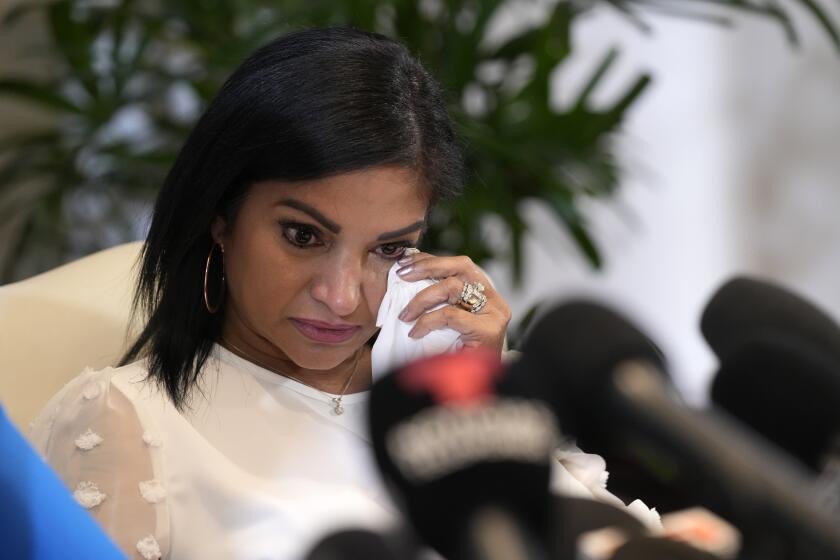Westlake Village Agrees to Display Menorah
After initially refusing to display a six-foot menorah next to its City Hall Christmas tree, the city of Westlake Village has accepted a small, table-top candelabra in what officials called a gesture of seasonal harmony.
The turnabout came after Rabbi Moshe Bryski, regional director of the Jewish group Chabad of the Conejo, phoned Mayor Bonnie Klove and told her that it was a bad time of year to upset a significant portion of the community.
She said Bryski convinced her that the group was not trying to stir up trouble. “Who am I to question the rabbi?” she said.
Westlake Village, a 9-year-old city with about 8,000 residents, had been the only Greater Los Angeles municipality approached by the religious group this year to reject its request for a menorah display, Bryski said.
The Hasidic-led Chabad, which has ties to the Orthodox Lubavitcher sect based in New York City, triggered the landmark Pittsburgh, Pa., case that resulted in July in a U.S. Supreme Court ruling that menorahs are cultural symbols and, as such, can be displayed on public property.
The American Civil Liberties Union, as well as several prominent Jewish organizations that dismiss Chabad as unrepresentative of most American Jews, argue that menorahs are religious symbols that should not be exhibited on public property.
This holiday season, in the wake of the Supreme Court decision, Chabad has been pushing for the display of menorahs across the country, Bryski said. The group takes credit for public menorahs in Los Angeles, Beverly Hills, Santa Monica, Agoura Hills, Thousand Oaks and Santa Ana, which erected a menorah recently in Sasscer Park after a three-year court battle.
Klove and other Westlake Village City Council members have said earlier that they considered the menorah to be a religious symbol. City Manager Larry Bagley, who made the earlier decision to deny Chabad’s request, said City Hall’s storefront quarters were too small to exhibit symbols of holidays not endorsed by the state or federal government.
Publicity about the decision caused an uproar, according to Bryski, who said his office phone rang constantly with concerned calls from area Jews as well as non-Jews. Five TV stations requested interviews, Bryski said. A call from someone who wanted to organize a demonstration, he said, convinced him to approach the city again about placing the menorah.
The City Council plans to reconsider its holiday-display policy in February. Klove said the acceptance of a menorah was only a temporary measure. She said the council still wants to hear from the Jewish community and others on the issue.
“We just want everybody to be happy for this Christmas season,” Klove said.
The modern, chrome and glass, menorah was set in place without fanfare. Councilman James Emmons found the menorah through a friend and left work at mid-afternoon to pick it up and deliver it quietly to City Hall. Bryski and his colleague, Rabbi Yitzchak Sapochkinsky, were waiting--two bearded rabbis sitting in chairs flanking a Christmas tree.
Bagley joined them from his office.
“Happy holidays,” the rabbis told Bagley, shaking his hand.
“Happy holidays to you too,” the city manager told them.
The men leaned over the menorah, plugged it in, and it was lit.
“That’s what it’s all about,” Bryski said, smiling.
More to Read
Sign up for Essential California
The most important California stories and recommendations in your inbox every morning.
You may occasionally receive promotional content from the Los Angeles Times.










